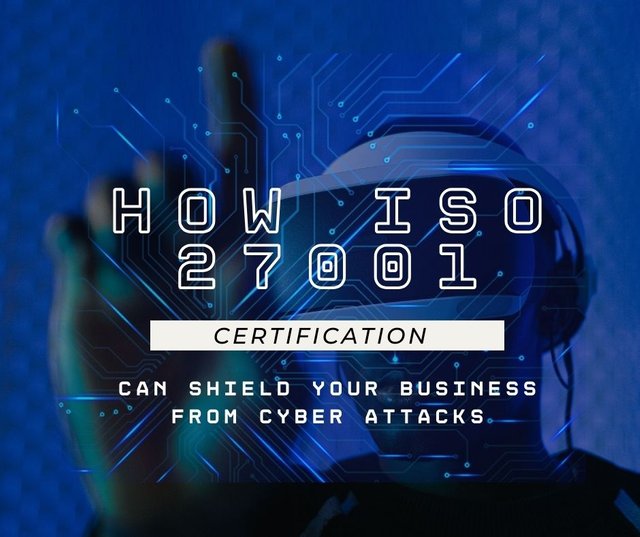How ISO 27001 Certification Can Shield Your Business from Cyber Attacks

In an era where digital landscapes dominate, safeguarding sensitive information against cyber threats has become paramount. ISO 27001 certification emerges as a powerful shield for businesses, offering a robust framework to fortify against cyber attacks and data breaches.
Understanding ISO 27001:
ISO 27001 is an international standard outlining best practices for information security management systems (ISMS). It's designed to systematically identify, assess, and address information security risks, ensuring the confidentiality, integrity, and availability of critical data.
The Cyber Threat Landscape:
As businesses increasingly rely on digital platforms, the threat of cyber attacks looms large. From phishing attempts to ransomware attacks, malicious entities continually evolve, seeking to exploit vulnerabilities in systems and networks.
The Role of ISO 27001:
ISO 27001 acts as a comprehensive shield, equipping organizations with the tools to preemptively identify vulnerabilities and potential breaches. It enables companies to implement robust security controls, encryption protocols, and incident response mechanisms.
Tailored Security Measures:
The certification isn't a one-size-fits-all solution; rather, it's adaptable to diverse business environments. ISO 27001 encourages a risk-based approach, allowing organizations to tailor security measures based on their unique risks, assets, and operational requirements.
ISO 27001 Implementation:
Embracing ISO 27001 involves a methodical approach. It begins with an in-depth analysis of existing security measures, identifying gaps, and developing a structured ISMS aligned with the standard's requirements. This includes creating security policies, conducting risk assessments, and establishing incident response protocols.
Resilience Against Cyber Threats:
ISO 27001 isn't merely about compliance; it's about fortifying resilience. The certification empowers organizations to anticipate potential threats, proactively mitigate risks, and respond swiftly to incidents. This proactive stance reduces the likelihood of successful cyber attacks.
ISO Support and Expertise:
Seeking ISO Support from experienced professionals greatly facilitates the certification process. Expert consultants offer guidance in navigating complex security landscapes, implementing best practices, and ensuring alignment with ISO 27001 standards.
Gaining Stakeholder Trust:
ISO 27001 certification isn't just an internal initiative; it's a testament to an organization's commitment to safeguarding sensitive data. It instills trust among clients, partners, and stakeholders, enhancing credibility and strengthening relationships.
Business Resilience and Continuity:
Beyond immediate security advantages, ISO 27001 fosters business resilience. By minimizing disruptions caused by cyber attacks, organizations can maintain operational continuity, protect their reputation, and sustain customer confidence.
Conclusion:
ISO 27001 isn't merely a compliance framework; it's a strategic investment in fortifying against the ever-evolving landscape of cyber threats. Its implementation demonstrates an organization's proactive approach to securing information assets, ensuring long-term resilience, and maintaining a robust defense against cyber attacks. ISO 27001 support from seasoned professionals further enhances an organization's ability to navigate the complexities of information security, effectively mitigating risks and preserving data integrity.